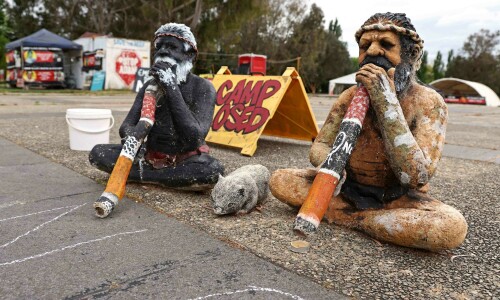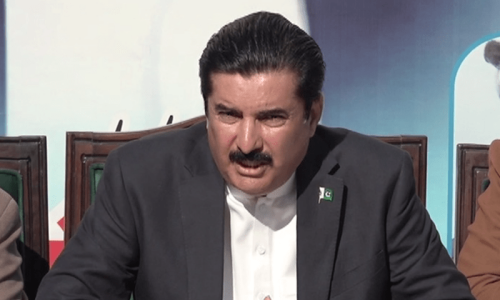APIA: King Charles said on Friday the Commonwealth should acknowledge its “painful” history, as African and Caribbean nations pushed for reparations for Britain’s role in transatlantic slavery.
But British Prime Minister Keir Starmer has rejected calls for reparations and ruled out apologising for the country’s historic role, but said he was open to engaging with leaders who want to discuss it.
Representatives of 56 countries, most with roots in Britain’s empire, are attending the Commonwealth Heads of Government Meeting in Samoa, with slavery and the threat of climate change emerging as major themes.
“I understand from listening to people across the Commonwealth how the most painful aspects of our past continue to resonate,” Charles said in a speech to the summit.
“It is vital, therefore, that we understand our history, to guide us towards making the right choices in future.”
The demand for former colonial powers such as Britain to pay reparations or make other amends for slavery and its legacies today is a long-standing one, but has gained momentum worldwide, particularly among the Caribbean Community (Caricom) and the African Union.
Opponents of reparations say countries should not be held responsible for historical wrongs, while those in favour say the legacy of slavery has led to vast and persistent racial inequality.
The Guardian newspaper, citing a source from Starmer’s office, reported late on Thursday that the British prime minister had “opened the door to non-financial reparations”, such as restructuring financial institutions and providing debt relief.
“We don’t recognise those reports,” a spokeswoman said when asked about non-financial reparations.
Starmer, speaking to Commonwealth leaders in Samoa, said he was aware there were some calls for reparations but that, in his view, countries should work together to ensure the future was not in the “shadow of the past but is illuminated by it”.
He announced Britain would host a UK-Caribbean forum next year.
There are different types of reparations, from financial payments and apologies to technology transfer and educational programmes. Caricom has its own reparations plan.
‘Paradise in danger’
Bahamas Foreign Minister Frederick Mitchell told the BBC on Thursday the summit’s draft conclusion, expected to be published on Saturday, had paragraphs calling for a discussion on reparations.
“If we say we want greater equality and equity in the world, the way to do this is to examine what and how reparations might manifest, rather than to shut down the conversation,” said Jacqueline McKenzie, a lawyer at London firm Leigh Day, where her team is investigating the potential for reparations claims.
From the 15th to the 19th century, 12.5 million Africans were kidnapped and forcibly taken by mostly European ships and merchants and sold into slavery. Britain transported an estimated 3.2 million people.
During the summit, member countries are also expected to sign the Commonwealth Ocean Declaration, which aims to boost financing to ensure a healthy ocean and fix maritime boundaries even if small island nations eventually become unlivable.
Published in Dawn, October 26th, 2024















































Dear visitor, the comments section is undergoing an overhaul and will return soon.